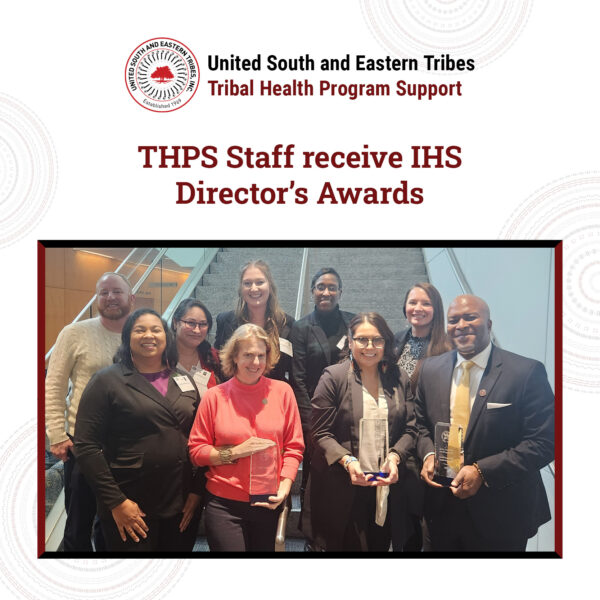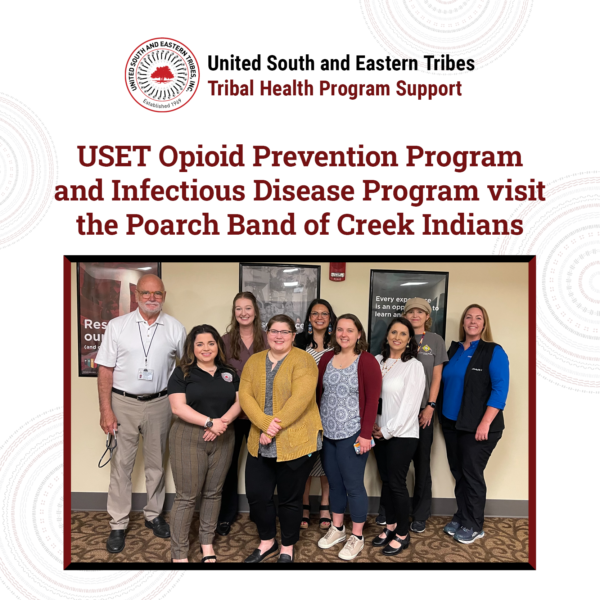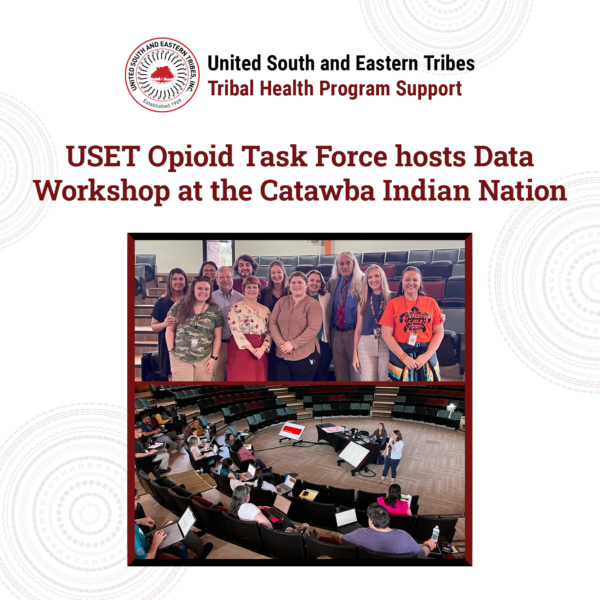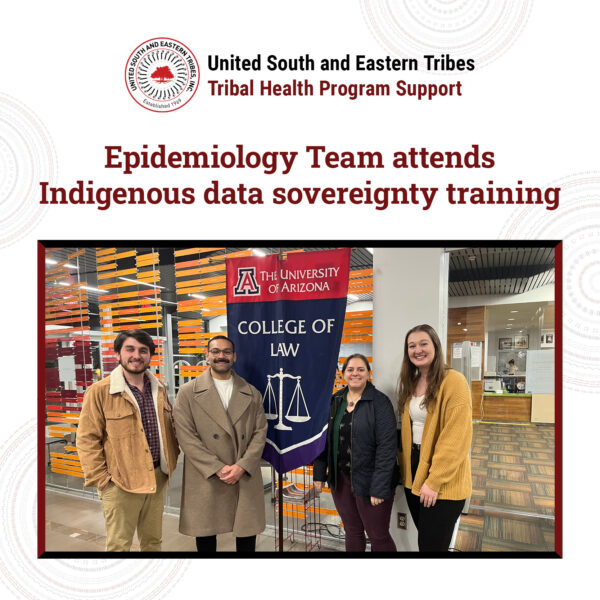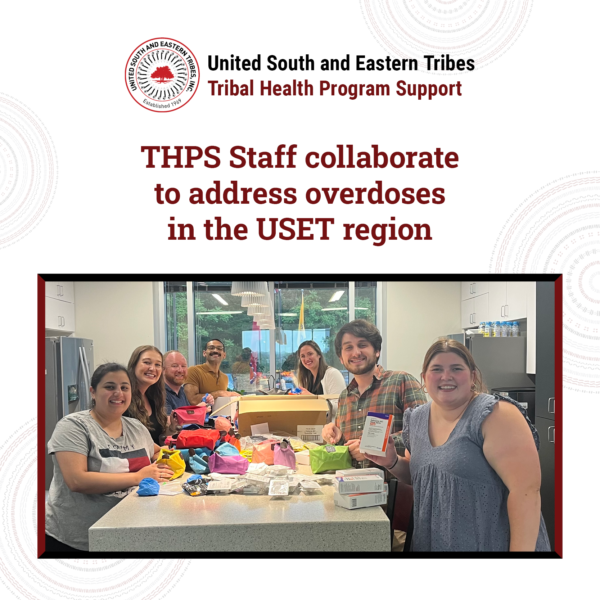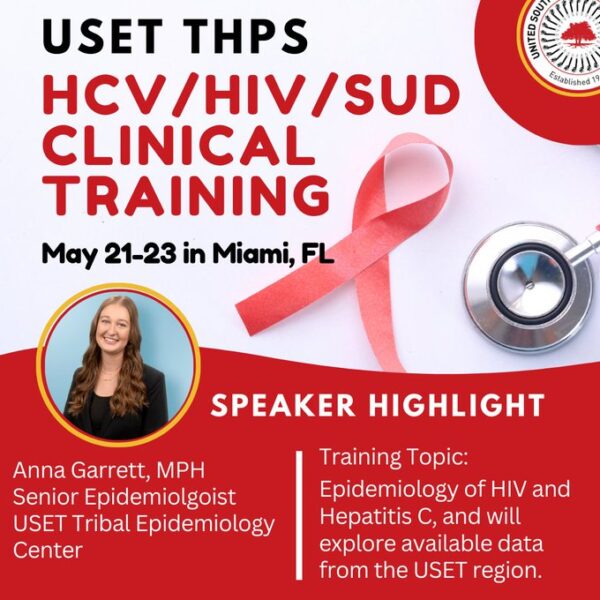The TEC Medical Epidemiologist is available for consultation for public health issues, such as program design/program improvement, data analysis, immunization questions, substance use disorder, population health and disease outbreaks. The Medical Epidemiologist can also be available for clinical consultation regarding individual patients for vaccine questions or other public health-related topics. For additional information please email the Medical Epidemiologist, Dr. Harry Brown, at hbrown@usetinc.org.
Tribal Epidemiology Center
Established in 2000, the USET Tribal Epidemiology Center (TEC) monitors and reports on the health status of Tribal Nations to promote wellness and reduce disease. The USET TEC is one of 12 TECs established by Congress through the Indian Health Care Improvement Act (IHCIA) and funded by the Indian Health Service (IHS). As a designated Public Health Authority (P.L 94-437 as defined by the Health Insurance Portability and Accountability Act [HIPAA]), the TEC supports Tribal communities in improving the health of Tribal citizens through seven core functions:
- Collect data relating to, and monitor progress made toward meeting, each of the health status objectives of the Tribal communities.
- Evaluate existing delivery systems, data systems, and other systems that impact the improvement of Tribal citizens' health.
- Assist Tribal communities in identifying the highest-priority health status objectives and the services needed to achieve those objectives, based on epidemiological data.
- Make recommendations for the targeting of services needed by the populations served.
- Make recommendations to improve health care delivery systems for Tribal communities.
- Provide requested technical assistance in the development of local health service priorities and incidence and prevalence rates of disease and other illnesses in the community.
- Provide disease surveillance and assist Tribal communities to promote public health.
The Importance of Data
Accurate data are vital to Tribal sovereignty, self-determination, and understanding the health of Tribal communities. Indian Country public health has long been neglected due to the failure of the United States to uphold the trust and treaty responsibilities and obligations to Tribal Nations. Publicly available state and federal data are often suppressed or collapse Tribal citizens into the “other” category due to small numbers and structural data racism. Health data held by Tribal Nations often do not include vital events (births and deaths) or healthcare accessed outside of primary care (emergency and specialty visits, and inpatient behavioral health). The TEC works to improve Tribal Nation data by providing training and support to Tribal clinics on documentation and data entry, accessing previously unavailable data (such as data held by state/federal agencies), and improving racial misclassification.
Tribal Epidemiology Center Special Projects
USET TEC participates and advocates in the Council of State and Territorial Epidemiologists (CSTE), Tribal Epidemiology subcommittee as well as CDC sponsored expert working groups. USET TEC prioritizes relationship building and data sovereignty advocacy to Federal partners and state partners within the USET region. USET TEC provides their expertise to USET SPF to contribute when opportunities for advocacy arise. For additional information, please email usetepi@usetinc.org.
Increasingly severe environmental hazards are posing serious health risks to our Tribal Nation communities. USET TEC staff collaborate with USET’s Office of Environmental Resource Management (OERM) staff to create and provide environmental and public health-oriented education opportunities to our member Tribal Nations.
For additional information about Environmental Health, please email the Climate Program Manager, Casey Thornbrugh, at cthornbrugh@usetinc.org, and/or USET Staff Epidemiologist Greer Harper at gharper@usetinc.org.
TEC staff strive to establish complete and accurate mortality data for USET member Tribal Nations by working with our Tribal Nations and federal and state partners. Data gathered from the state partners is entered back into each Tribal Nation’s Electronic Health Record to improve the completeness and accuracy of their records. Data compiled from these sources is used to create a mortality report, which features aggregate level and Tribal Nation-specific mortality data. While working to maintain data sovereignty, this project aims to gather information about leading causes of death and the burden of disease. Additionally, data can be used to tailor program planning, public health prevention efforts, and to secure resources to support Tribal Nations’ public health. For additional information about the Mortality Project, please email usetepi@usetinc.org.
USET TEC published a Weekly Area Seasonal Respiratory Illnesses Report via Alert to address COVID-19, Influenza, and Respiratory Syncytial Virus (RSV). Past reports are linked here for reference. Past surveillance reports have included influenza like illness surveillance reports, USET aggregate and Tribal Nation specific COVID-19 surveillance reports. Reports run seasonally and ended on March 21, 2024, they are expected to start back in early October.
Additionally, USET TEC publishes Alerts on important timely health related issues relevant to USET region. Please email the Senior Epidemiologist, Anna Garrett at agarrett@usetinc.org to discuss any Tribal Nation specific needs.
USET TEC happily accepts member Tribal Nation requests for technical assistance, subject matter expertise, data analysis, survey design, etc. Please email usetepi@usetinc.org for all requests, general or specific. This will send an email to the entire Epidemiology Team, so please do not include sensitive information or data in the initial email. We will respond and set up a virtual meeting to gather more information about your request.
A Tribally centered epidemiology approach to public health preparedness and resilience with the primary goal of strengthening the resilience of USET member Tribal Nations through public health strategies focused on the mitigation, prevention, and preparation phases of the disaster management cycle. Additional information is linked here.
USET TEC publishes email Alerts on important time-sensitive health related issues relevant to USET region. Past topics have included infectious disease updates, treatments, and vaccinations (such as COVID-19, RSV, influenza, malaria, mpox), environmental health risks (such as wildfire smoke), and general awareness for seasonal health topics (such as tick and mosquito prevention). Email bvenuti@usetinc.org if you are employed by a USET member Tribal Nation and are not already on the email list. Past USET TEC Alerts are linked here. For additional information, please email usetepi@usetinc.org.
USET TEC publishes social media posts on ongoing programmatic work and important time-sensitive health related issues for awareness. USET TEC publishes webinars and recorded content on our USET YouTube Channel. Click the link here to check it out. Follow us on social media: Facebook, LinkedIn, Instagram, Twitter, and YouTube.
USET TEC aims to spread awareness on a variety of health-related topics reflective of USET Region representation. USET TEC has compiled an archive of past social media posts and educational material, it is linked here as a sample of our work.
USET TEC publishes webinars and recorded content on our USET YouTube Channel. Click the link here to check it out.
For additional information, please email usetepi@usetinc.org.
Areas of epidemiological support and expertise
Community Health Assessment
USET TEC provides data collection, analysis, and reporting on factors that pose a risk to behavioral and community health of our member Tribal Nations. We provide technical assistance in conducting community health assessments aimed at providing a clear picture of the emotional, mental, spiritual, economic, and physical health of a community.
For additional information about the Behavioral Health Program, please click here or email the Behavioral Health Program Manager, Kasha Harris, at kharris@usetinc.org.
The TEC provides epidemiological support to the Chronic Disease Program as needed.
For additional information about the Chronic Disease Program, please click here or email the Chronic Disease Program Manager, Jacqueline Carter, at jcarter@usetinc.org.
USET TEC provides general support and advocacy on subjects related to data improvement and modernization. For additional information about the Data Improvement Program, please email the Quality Improvement Data Analyst, Bryan Hendrix, at bhendrix@usetinc.org.
In collaboration with the Dental Support Center, USET Epidemiologists support USET member Tribal Nations to establish data collection methods and assistance in data analysis and report creation.
For additional information about the Dental Support Center, please click here or email the Dental Support Center Director, Leon Roberts, at lroberts@usetinc.org.
USET TEC combines and analyzes the Indian Health Service Diabetes Audit and other clinical data to formulate individual reports for our member Tribal Nations. These reports are provided to Tribal Nation Leaders and policymakers to enable them to make informed decisions of future diabetes prevention programs.
For additional information about the Diabetes Program, please click here or email the Diabetes Control Officer, Dietrich Taylor, at dtaylor@usetinc.org.
Infectious Disease Project ECHO (Extension for Community Healthcare Outcomes)
TEC staff host monthly webinars that incorporate case-based learning around topic infectious diseases topics presented by experts in their field. USET TEC utilizes the Project ECHO framework created by the Northwest Portland Area Indian Health Board to bring together community health providers in a collaborative manner to help local workers share knowledge and gain the expertise required to provide needed services. Presenters are subject matter experts and include medical providers from Cherokee Nation Health Services, such as Dr. Jorge Mera and Whitney Essex. CEUs are available and cases can be presented for discussion. To view past Infectious Disease ECHO sessions, click here. To register, please visit the registration page here. USET’s Infectious Disease ECHO is typically held the second Friday of every month. The most current topic and event information can be found on the USET calendar, linked here.
Vector-borne Diseases
USET TEC and Infectious Disease Program is proud to partner with member Tribal Nations requesting support in developing mosquito and summer wellness kits for their communities. These kits contain educational materials and the most effective mosquito and wellness materials prioritizing Native vendors. The project aims to increase awareness of mosquito prevention strategies to decrease mosquito borne diseases. Additionally, in 2023, general summer wellness items were included in the bags to cross promote overall health and wellness during the summer months. This in turn promotes increased connection with nature in a safe, healthy way which has multiple health benefits!
Immunizations
USET TEC increases awareness through a variety of communication approaches supporting vaccination efforts to improve immunization rates. Over the past few years, many children have overcome challenges and may have missed routine check-ups and recommended childhood vaccinations. At the USET Tribal Epidemiology Center, we firmly believe in highlighting strengths and positive steps forward. Taking action to help your children catch up on missed vaccinations may ensure they are prepared and on track for a successful journey through school and life. To see a list of recommended vaccines by age group visit www.cdc.gov/vaccines/vpd/vaccines-age.html.
Sexually Transmitted Diseases
Universal Screening Program
USET TEC in partnership with Vanderbilt University Medical Center are in the process of developing a universal screening program to help reduce the risks of HIV/STI/STD within Tribal Nation clinics. The goal of this program is to develop and implement innovative testing and health care engagement strategies focused on meeting the needs of high-risk individuals. This identifies health clinic staff's perceived incidence and prevalence of HIV/STI/STD, potential barriers to patients seeking treatment or testing at Tribal Nations’ clinics, and obstacles to health clinic staff in delivering testing and treatment. USET TEC provides support to the Infectious Disease Program in relation to survey design, data analysis, and interpreting results.
HIV Health Education Kits
USET TEC provided HIV Health Education Kits to participating member Tribal Nation clinics. These kits support reduction of HIV rates and educate those living with HIV while incorporating an Indigenous “Food is Medicine” approach, which uses traditional foods, such as dried strawberries and herbs, as healthy options to assist in healing the body and boosting the immune system. USET TEC Epidemiologists assisted in determining items to include in the kits and tailoring health promotion messaging, while promoting accurate epidemiology of HIV.
For additional information about the Infectious Disease Program, please email the Tribal Health Program Support Assistant Director, Christy Duke at cduke@usetinc.org .
Social Determinants of Health
TEC staff analyze factors that influence health outcomes, such as income, educational attainment, and housing, to inform interventions that address health inequalities.
Overdose Prevention
TEC staff work with stakeholders across multiple sectors, including emergency departments, funeral home directors, pharmacies, and medical providers who serve Tribal citizens, to identify data gaps specific to opioid use disorders. We work directly with Tribal Nations upon request to create surveillance systems to address specific needs.
For additional information about the Integrated Community Health, please click here or email the Public Health Program Manager, Bernice Jordan, at bjordan@usetinc.org.
Racial Misclassification on Death Certificates
Though the Mortality project, TEC staff in collaboration with TECPHI, provide training on racial misclassification among American Indian/Alaskan Native on death certifications and work with relevant stakeholders such as funeral directors. This effort is aimed at lowering the rates of racial misclassification of American Indian/Alaskan Native individuals and providing data that can better identify health needs.
For additional information about TECPHI, please email Onawa Miller at omiller@usetinc.org.
MEET THE USET TEC TEAM
Please email usetepi@usetinc.org for all requests, general or specific. This will send an email to the entire Epidemiology Team, so please do not include sensitive information or data in the initial email.

Anna Garrett
Senior Epidemiologist
Programmatic Focus: Data Sovereignty and Access Advocacy; Infectious Disease; Data Improvement; Surveillance Reports, Tribal Public Health Preparedness and Resilience
agarrett@usetinc.org

Brice Fortinberry
Staff Epidemiologist
Programmatic Focus: Behavioral Health; Integrated Community Health; Dental Support Center; TECPHI, Community Health Assessments
bfortinberry@usetinc.org

Greer Harper
Staff Epidemiologist
Programmatic Focus: Diabetes Center, Chronic Disease, Environmental Health, Surveillance Reports, Mortality Reports
gharper@usetinc.org

Samantha Rieche
Epidemiology Program Coordinator
Programmatic Focus: Tribal Public Health Preparedness and Resilience, Community Health Assessments
srieche@usetinc.org




